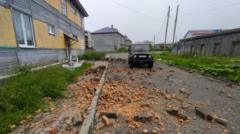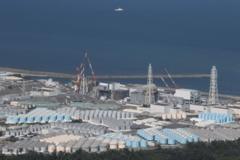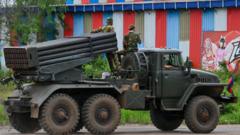Following a significant victory, Myanmar's rebel forces have abandoned the city of Lashio due to Chinese intervention aimed at protecting its economic interests in the region. The withdrawal marks a significant shift in the ongoing civil war.
China's Influence Forces Myanmar Rebels to Retreat

China's Influence Forces Myanmar Rebels to Retreat
In a dramatic turn of events, Myanmar's rebel forces have relinquished control of Lashio to the military after pressure from China, raising concerns over Beijing's growing involvement in the civil conflict.
In a startling development in Myanmar's ongoing civil war, the nation's rebel forces have decided to withdraw from the strategically significant city of Lashio, handing back control to the military without any confrontation. This decision comes after sustained pressure from China, whose involvement in the conflict appears driven by its vested economic interests in the region.
The rebels previously achieved a remarkable victory last year when they captured Lashio along with an important military command center located near the Chinese border. This operation involved multiple factions and resulted in intense combat, with the rebels suffering over 500 casualties. However, despite their hard-fought gains, the situation has shifted dramatically.
According to rebel leaders, China's actions were decisive in their decision to retreat. Beijing has reportedly taken steps to bolster the junta's position, including halting border trade and cutting off power and internet access to impede the rebels’ operations. There are also claims that Chinese authorities detained a commander from the main rebel faction, which further complicated the insurgents' ability to maintain their foothold in the city.
Ni Ni Kyaw, spokesperson for a pro-democracy faction, asserted that China’s interference in Myanmar's affairs is purely motivated by its self-interest, despite Beijing's public assertion of non-interference. The economic stakes for China are high, given its investments in infrastructure and energy projects in Myanmar, which are crucial components of its Belt and Road Initiative.
This shift underscores the complex interplay of politics and economics in the region, indicating that international influences can directly impact local conflicts. The future of the conflict in Myanmar remains uncertain, as the balance of power continues to be swayed by external interventions.



















